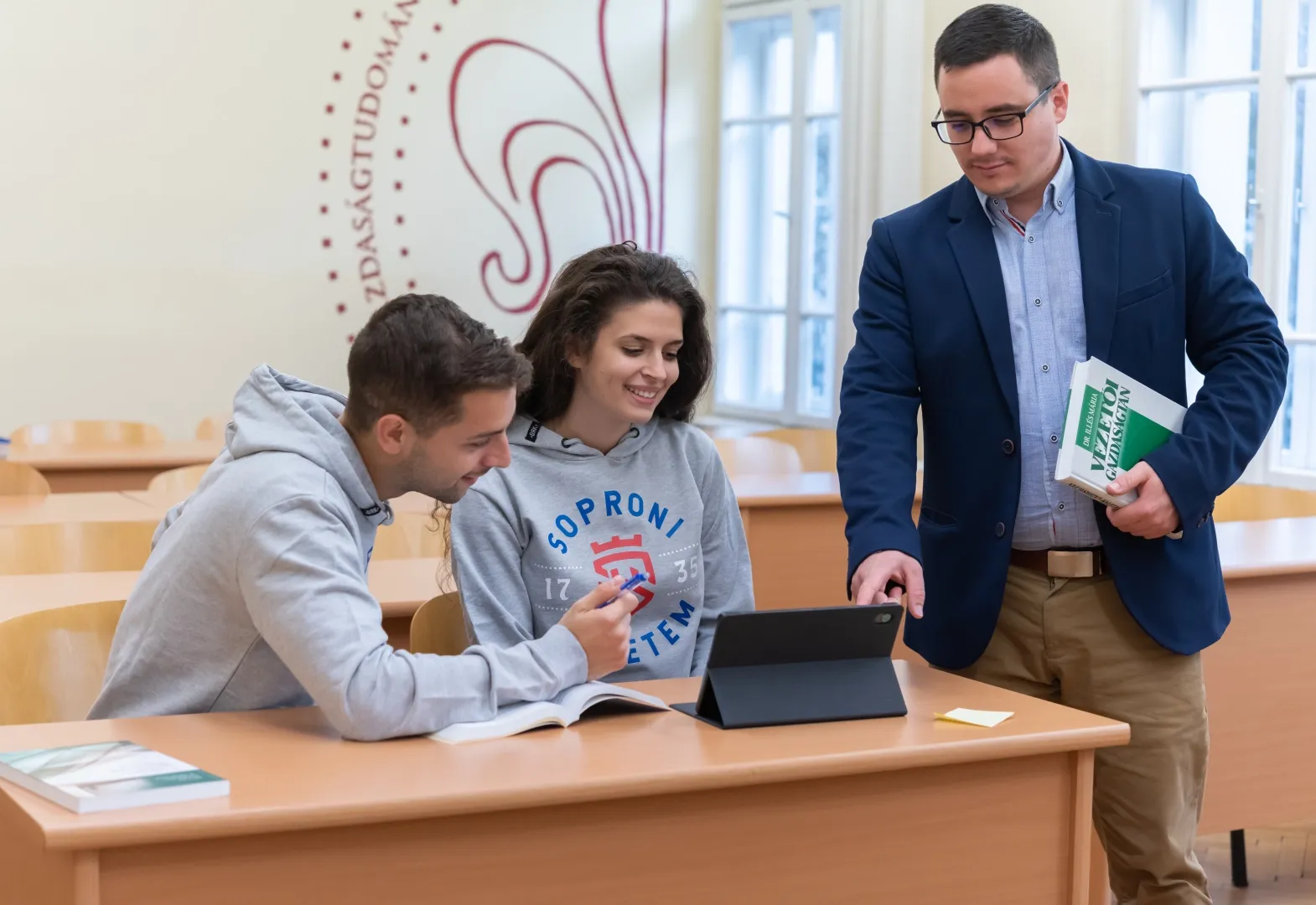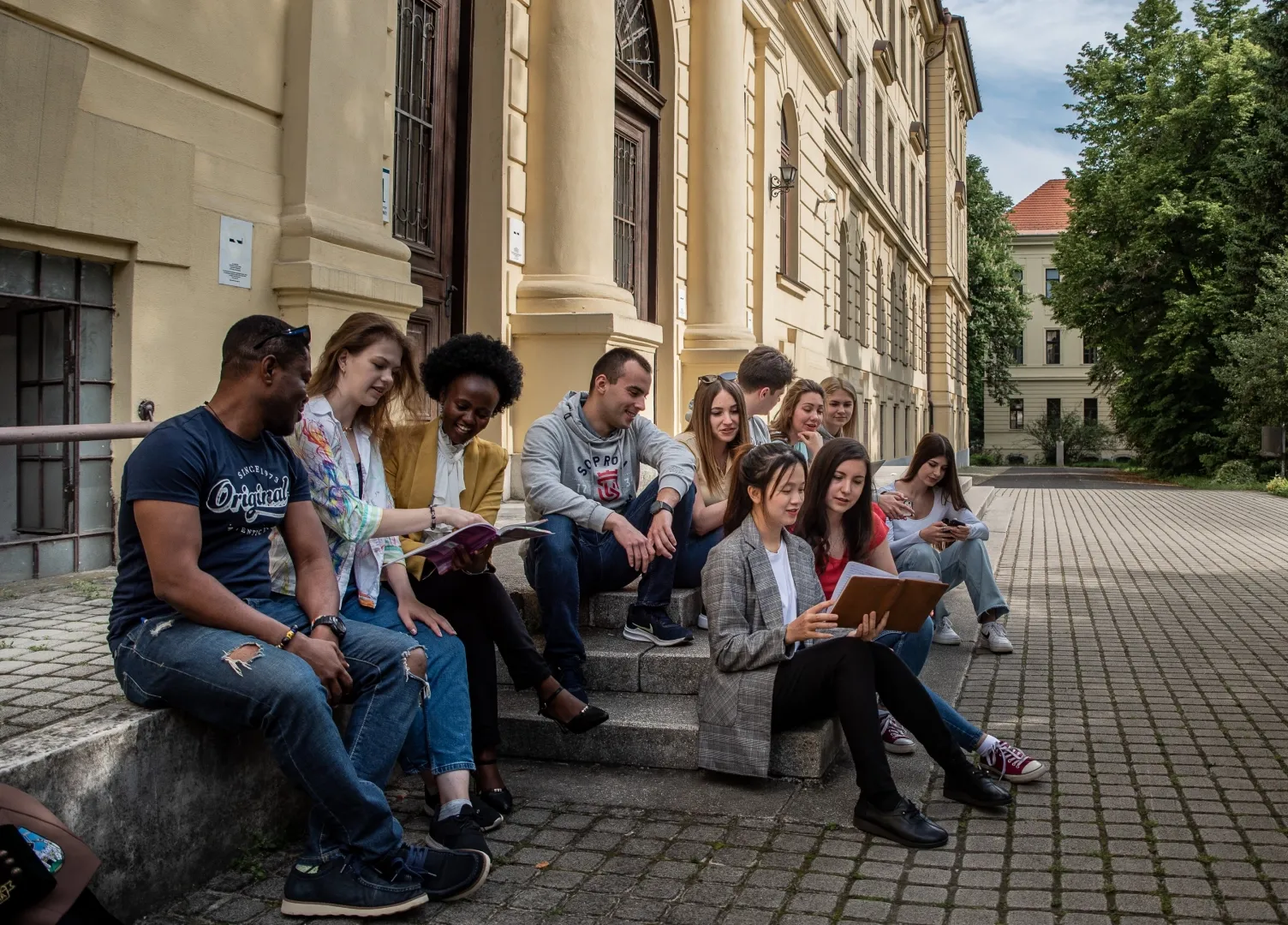Shape the Future of Global Economics and Business.
Programme Overview
The MSc in International Economy and Business at the University of Sopron equips students with the knowledge and skills to thrive in a globally interconnected economy. This program combines a strong foundation in economics, quantitative methods, and business management with a focus on international trade, finance, multinational corporations, and global strategies.
Graduates are prepared to tackle challenges in international business, diplomacy, consultancy, and academia or pursue doctoral studies to further enhance their expertise.
| General information | |
| Duration: | 4 semesters |
| Tuition fee: | 2750 USD / semester |
| Study mode: | full time |
| Intake: | September / February |
| Application period - self financed: |
September intake: From 1 March to...
February intake: 1 September - 31 October |
| Application period - Stipendium Hungaricum scholarship: | mid November - mid January |
| Language of Instruction: | English |
| Faculty: | Alexandre Lamfalussy Faculty of Economics |
Why Choose This Programme?
This program reflects the increasing globalization and dynamic nature of international economics. Key benefits include:
- Comprehensive Curriculum: Gain a deep understanding of micro and macroeconomics, international trade, global finance, and corporate strategies.
- Focus on Real-World Applications: Develop skills in quantitative decision-making, economic sociology, international law, and global business practices.
- Tailored Learning Environment: Small group sizes foster personal interaction with professors and peers.
Programme Highlights
 Main Subjects:
Main Subjects:
The curriculum covers essential and advanced topics, including:
- Advanced Economics
- Research Methodology
- International Business Information system
- Advanced International Finances and Account
- Sustainability and Environmental Economics
Career Opportunities:
Graduates of this MSc program are well-equipped for careers in:
- Multinational Companies
- Financial and Service Institutions
- Diplomacy and International Organizations
- Consultancy Firms
- Academic and Research Institutions
- Political and Media Sectors
Qualification Awarded: Economist MSc Level
 Admission Process
Admission Process
- Document Review: The enrollment committee assesses submitted documents.
- MS Teams Interview: Applicants may need to demonstrate foreign language skills and knowledge.
- Final Decision: Successful applicants will be notified and receive further enrollment instructions.
Credit Requirements:
- Full credit recognition for the International Business BSc program.
- For other economics-related degrees, applicants must have at least 15 credits in fields such as micro/macro-economics, finance, marketing, statistics, or management.
Online Application for MA/MSc Programs
Applicants to the University of Sopron's English-taught MA/MSc programs must provide the following:
- BA/BSc Certificate: Provide a copy in English or German.
- Transcript of Records: Upload your academic records in English or German.
- Passport Copy: Ensure clarity and validity.
- Proof of English Proficiency:
- A valid English proficiency certificate at B2 level or higher, such as TOEFL, IELTS, Cambridge English Qualifications (FCE or higher), Oxford Test of English (OTE) or other internationally recognized English tests, or
- Medium of Instruction Certificate (if applicable).
- Note: Native English speakers are exempt from this requirement.
- Application Fee Payment Confirmation: Upload the receipt.
- Optional Documents: Add recommendation letters, motivation letters, or a CV.
Important: If any document is not in English or German, attach a certified translation.
About the Faculty
The Alexandre Lamfalussy Faculty of Economics honors its namesake, a world-renowned economist, by upholding a legacy of excellence. The Faculty emphasizes close interaction between students and professors, offering small-group training and personalized support to ensure academic and professional success.
Discover your potential in the dynamic world of international economics and business. Apply for the MSc in International Economy and Business at the University of Sopron today!
Contact The Faculty:








